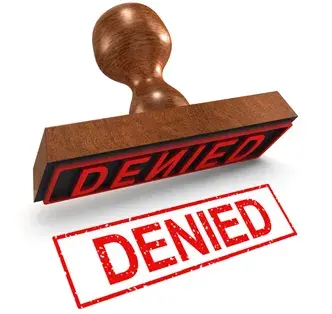Medicare Part B covers two types of services – medically necessary services and preventive services. While Part A focuses on emergency services, Part B covers day-to-day medical needs and this is why Part B claims are crucial for healthcare providers.
Once you furnish covered services to Medicare Part B beneficiaries, you can submit claims requesting payment for services received by the beneficiary. However, mistakes in claim submission lead to Medicare refusing payments and resultant revenue loss. Let’s consider common Medicare Part B claim submission errors and how medical eligibility verification can tackle this problem.
Apart from untimely submission, the following common mistakes (along with reason codes) are found during claim submission such as:
- Non-covered charge(s) (CO-96) – Part B covers clinical research, ambulance services, durable medical equipment (DME), mental health (inpatient, outpatient and partial hospitalization), limited outpatient prescription drugs, and providing second opinion before surgery. But it does not cover prescription drugs that are self-administered, eyesight and hearing exams, glasses and hearing aids or general dental work performed by a dentist or oral surgeon. So, you should be very careful when mentioning charges for services while filing claims.
- Claim not covered by this payer/contractor (CO-109) – This type of claim denial indicates that the service billed in the claim is processed or paid by another contractor. You must send this claim to the correct payer/contractor. Some examples of these types of services are Durable Medical Equipment, Hospice related services and Medicare Advantage. This error may occur due to missing supplemental patient information (such as the patient’s permanent address) or change in patient’s coverage and the place of service is skilled nursing facility or patient opted out of Medicare fee for service.
- Duplicate claim or service (CO-18) – This indicates that the Part B claim has been submitted more than one time. If the submitted dates are within a small interval, you can check the claim history and wait for the original claim status. You can also call Interactive Voice Response (IVR) Unit to check the claim status and see whether another claim was paid or is currently being processed.
- Payment is denied when performed/billed by this type of provider (CO-170) – This means a particular item or service billed in the claim is not covered when performed, referred or ordered by this provider. Medicare guidelines specify certain requirements for performing, referring and ordering physicians and claims are denied if the physician is not eligible.
- These are non-covered services because this is not deemed a ‘medical necessity’ by the payer (CO50) – When this denial occurs, it indicates Medicare does not consider the item or service billed in the claim as medical necessary for the patient. This type of denial cannot be resubmitted, but must be sent to redetermination.
Role of Eligibility Verification in Tackling Denials
The insurance verification process is a critical step in the revenue cycle and allows providers to verify Medicare patients and ensure the patient is eligible for Part B coverage. Eligibility verification process involves the verification of both personal information (for example, name, birth date, gender) and coverage information (for example, type of coverage, days information) so that you ensure your claims are accurate and reduce denials significantly. Here is how eligibility verification process curbs aforementioned claim errors:
- Through eligibility verification process, providers can ensure that a particular service is covered under Medicare Part B coverage before billing that service. You can also check whether the patient can request to cross over the charge billed to their secondary insurance. In that case, you should add the appropriate modifier during medical coding process to avoid claim denials.
- By performing eligibility check on each patient who visits your healthcare facility, you can ensure whether the patients change insurance plans and whether they are eligible for replacement coverage or additional coverage. In this way, you can avoid CO-109 denial.
- During eligibility verification process, you should check both local and national coverage determinations for all procedures performed so that you can make sure that the patient has the diagnosis code(s) required for those procedures and the frequency doesn’t cross appropriate limits. In this way, you can ensure medical necessity.
Apart from thorough eligibility verification, accurate coding and frequent auditing of claims before submission (especially, to ensure medical necessity) is also required to avoid denials and receive timely reimbursement.




